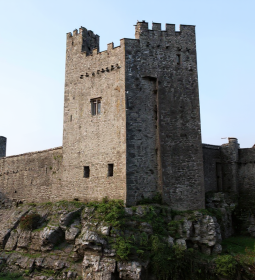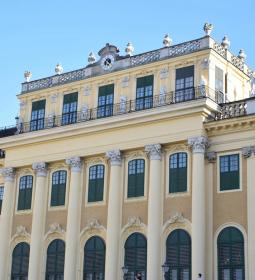Benefits of Edinburgh Schools
- In most of the top universities you can do with your school certificate right after the end of high school in the homeland
- The Scottish system of education has a number of principal differences from the British one: it is believed that there are more flexible programs and accessible education
- Prices for food and housing are lower than in England
- Edinburgh - a city with a high quality of life, an excellent place to stay
- In general, the Scottish system of education has absorbed the best of British educational standards: there is a wide choice of educational programs, educational institutions differ from each other and have their own academic traditions and characteristics.
The education system in Scotland: the features of education and upbringing
As a general rule, in primary school in Scotland, students study one year more than in other countries in the United Kingdom, in addition, high school students study more subjects. The school in Scotland can be graduated one year earlier than English, and at the university you can study for a year more.
Provided that children are ready to go to school, they go to the age of 5 and finish the mandatory stage at the age of 16. Pre-school education can be obtained in special institutions of Pre-school: here students learn to read, count, write, develop their creative abilities.
- From 5 to 12 years old students attend elementary school, where the following subjects take place: writing, arithmetic, reading, computer science, natural history, art, ethics and religion
- From the age of 12 to 15 students go to secondary school, at the end of this stage they receive a certificate SCE, which is an analogue of English GSCE
- At the age of 15, the guys decide where to study next: spend another 3 years at school, and then go to college. After completing 3 more classes at school, students receive Advanced Higher, which is similar to the British A-level and allows entering any UK university.
In the best universities the learning process is strongly sharpened to practical-oriented teaching, applied disciplines are taught here at the highest level. After school, students can go to college and study in it for 2 years, which correspond to 2 years of study at the Higher National Diploma course, or to pass a special one-year course of the Higher National Certificate. Many colleges cooperate with universities, which gives an opportunity to enroll at the third year of the university, having finished 2 years in college.
Very demanded in the list of leading programs will be the Higher National Diploma and Higher National Certificate courses, which will allow not only to enter the university - for many students this is the beginning of their work activity, where they will have a lot of practice and internship, so at the end of the course they become qualified specialists. In the colleges of Edinburgh, you can take professional courses in the following specialties:
- Finance and business;
- Automotive industry;
- Engineering;
- Interior design;
- Work with students;
- Electroengineering;
- Beauty Industry, Hairdressing;
- Retail;
- Tourism;
- Sport, physical education, fitness;
- Social and Human Sciences;
- Cooking;
- Music, production;
- Theater;
- Modern foreign languages.
For those who come from abroad there are special Foundation educational courses: this is the most guaranteed way to enter the university. After 4 years of study, students are awarded a bachelor's degree. The student can choose the most diverse disciplines for study, besides one can study on so-called "sandwich courses" and combine profile work with studies. In addition, students can freely change faculty and even an educational institution! In the magistracy, one year is studied here, and 3 are in doctoral studies.
What are the programs, types of education and language requirements in Scotland
| Programs | Age | Language and academic requirements | Examples of educational institutions in Edinburgh | Average cost per year (GBP) |
| Summer camp | 6-18 | Elementary | 860 £ per week | |
| Language school | 16+ | 650 £ per week | ||
| High school programs | 11-17 | Intermediate | 6,000 £ per term | |
| Pre-university preparation | 16-18 | IELTS 5.0 / TOEFL ibt 70 | Fettes college: IB and A-level programs | 10,415 £ per term |
| Degree of HNC | 17+ | 4,800 £ for 18 weeks | ||
| Bachelor's program | 17+ | IELTS 6.5 / TOEFL ibt 80 | 5,085 £ per term | |
| Master's Courses | 20+ | IELTS 6.5 / TOEFL ibt 80 | 12,620 £ per year | |
| Doctoral studies | 21+ | 24,000 £ |
Opportunities for foreign students in Edinburgh
- If prestigious universities in England necessarily require additional education before entering the university, then in many Scottish universities it is enough to provide a school certificate. The main questions when choosing Edinburgh for study: the formulation of a visa, the choice of the optimal accommodation option and excellent knowledge of English. It is advisable to begin preparing for the move to Edinburgh, preparing the package of the document and mastering the fundamental knowledge already 2 years before admission. All foreign students apply to the UCAS (Universities and Colleges Admissions Service) service, which deals with the entire procedure for enrolling in British educational institutions.
- Those, then demonstrate the most outstanding academic successes, will be able to get a scholarship or a grant - one of the main requirements will be a high score of the certificate. As a rule, scholarships are given to a limited number of applicants: for example, about 30 scholarships are awarded each year for master's programs, the amount of which does not exceed 5,000 £, while for bachelors there are approximately 15 grants in the amount of 2,000 £. Universities can finance promising research projects of postgraduate students and masters. Foreign students and from the CIS countries often claim for the UK Chevening Scholarship Program, which fully or partially covers the costs of education.










